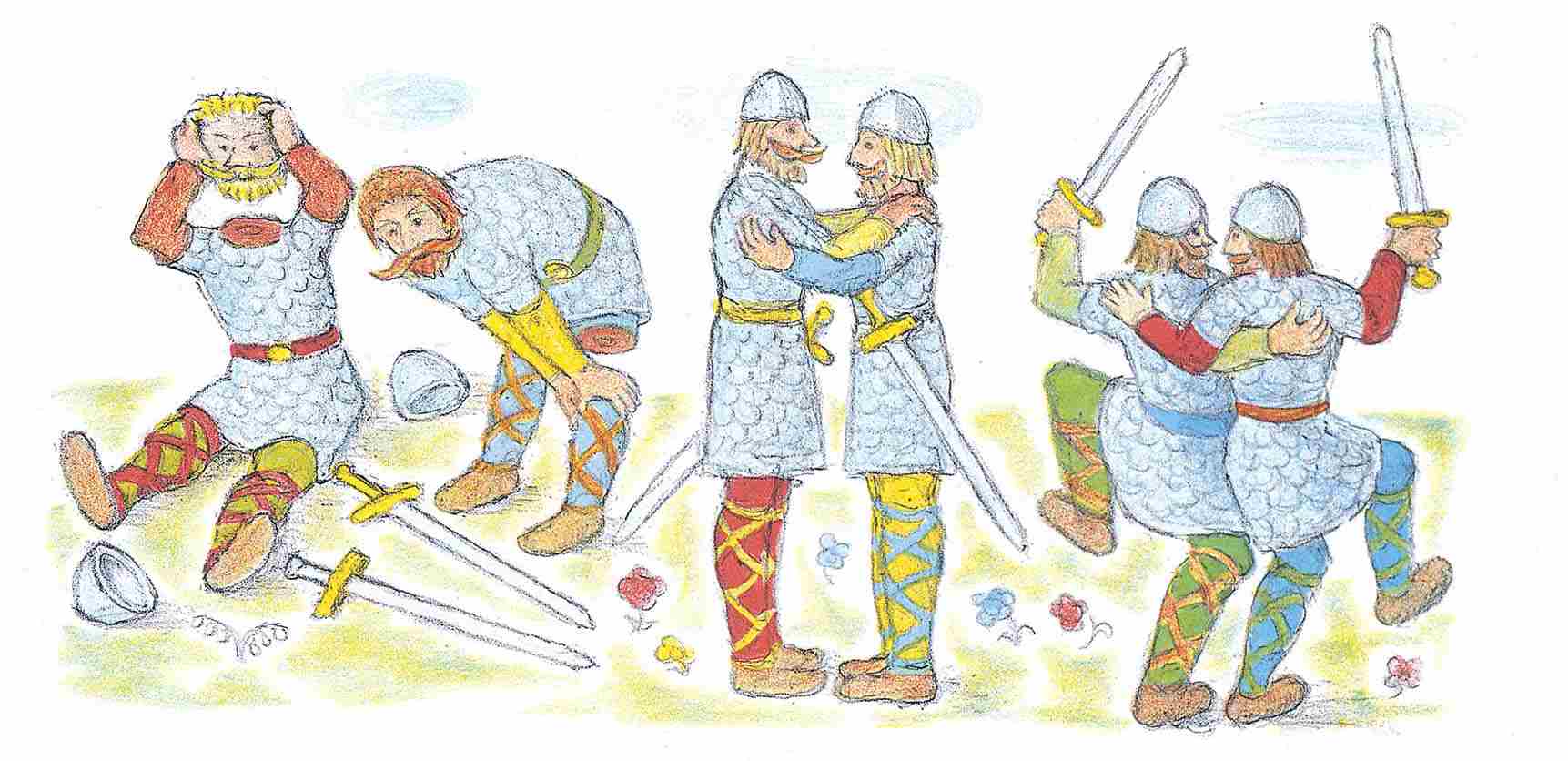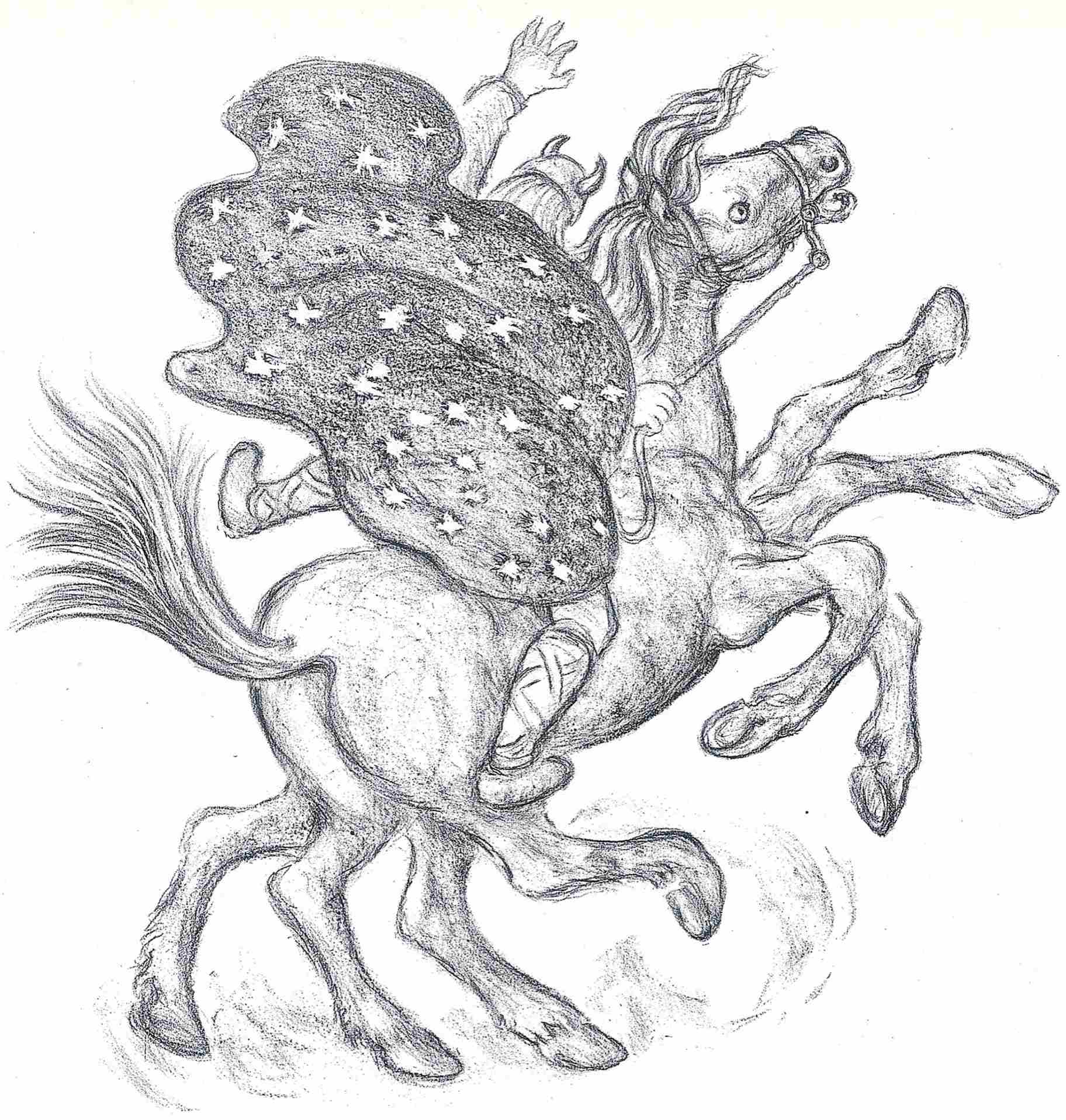

ODIN needed such a horse to take him like a storm wind from Asgard to battlefields on earth. There were many battlefields, for just as gods had fought in holy Asgard, men were fighting on earth. They fought each other for gold, they fought each other for land, they fought each other for the fun of fighting. And Odin was no longer only the great All-father and the wise wanderer; he was also the furious god of storm and war as well. Then he was called Ygg, the terrible one.
When he was seen in the gray light of dawn, racing his eight-legged steed over the towering clouds, people knew that somewhere a bloody battle would soon be fought. Both armies would be calling loudly to Odin, praying for the victory that he alone could give.
With his single eye flashing under a golden helmet and his huge body wrapped in a coat of mail, Odin would arrive at the battlefield. He would quickly decide who was to win, and then he would throw his spear, the Gungnir, over the host that must lose. He always tried to make the better warrior win, but sometimes it was a hard choice, especially when good men were fighting one another.
Odin was followed by a band of tall and handsome warrior maidens clad in shining armor, with winged helmets on their heads. As they stormed through the clouds their swords gleamed like lightning, and the foam from their panting steeds fell to the ground as hail. They were the Valkyries, Odin’s maidens. Most of them were from Asgard, daughters of goddesses. But once in a while Odin was so taken by the brave spirit of a maiden on earth that he let her join the ranks of the Valkyries. They did not go to Asgard to live, but Odin gave them lovely white cloaks of swans’ feathers so that they could fly around Midgard even when there were no battles raging. Proud was the hero who got a Valkyrie for a wife.
The Valkyries chose who would die in battle and brought the dead heroes up to Asgard. There they lived a life of glory in Odin’s guesthouse, Valhalla. Odin foresaw that sooner or later a final battle between the Aesir gods and the forces of destruction would have to be fought, and he wanted a great army of good soldiers at his side.
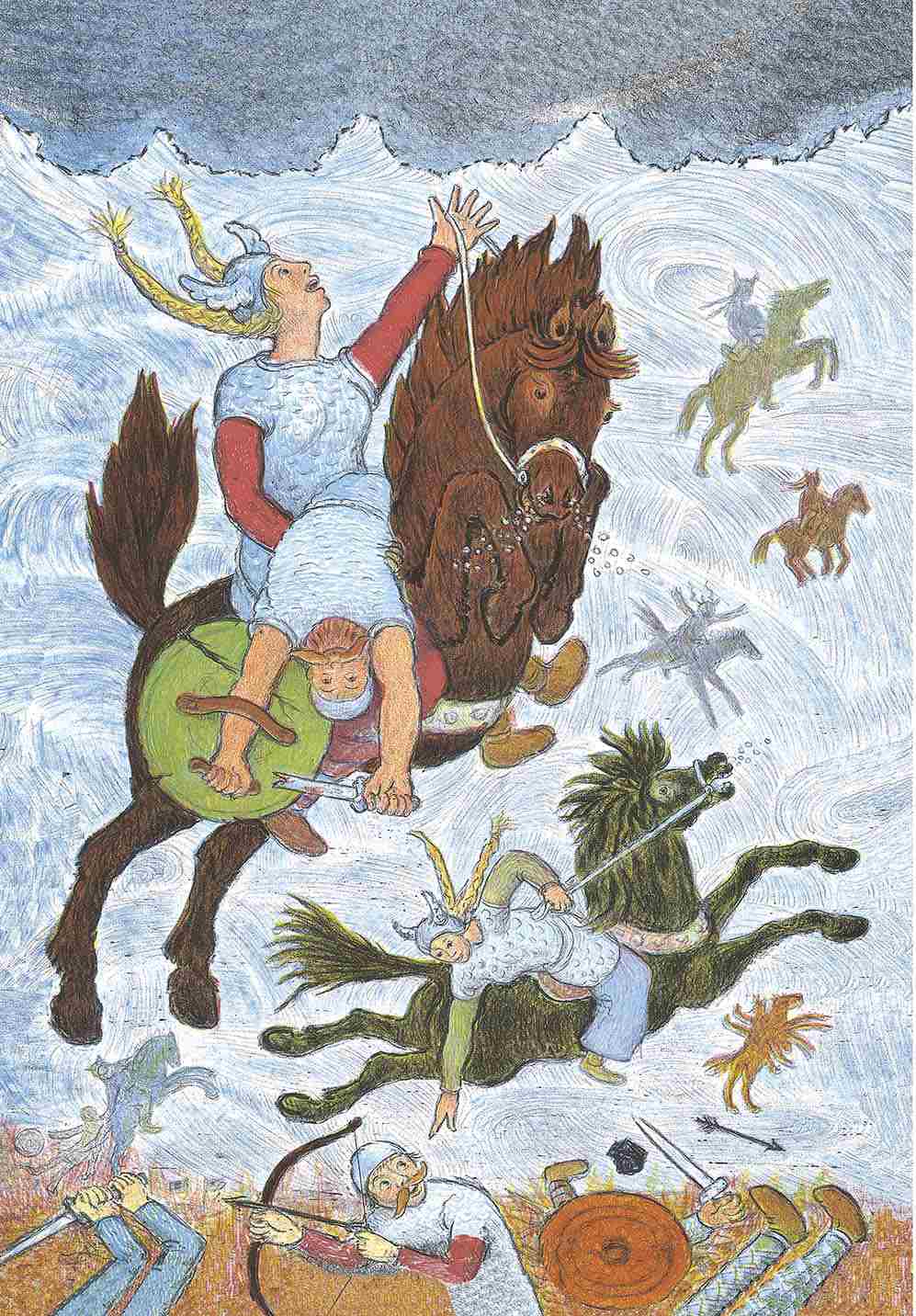
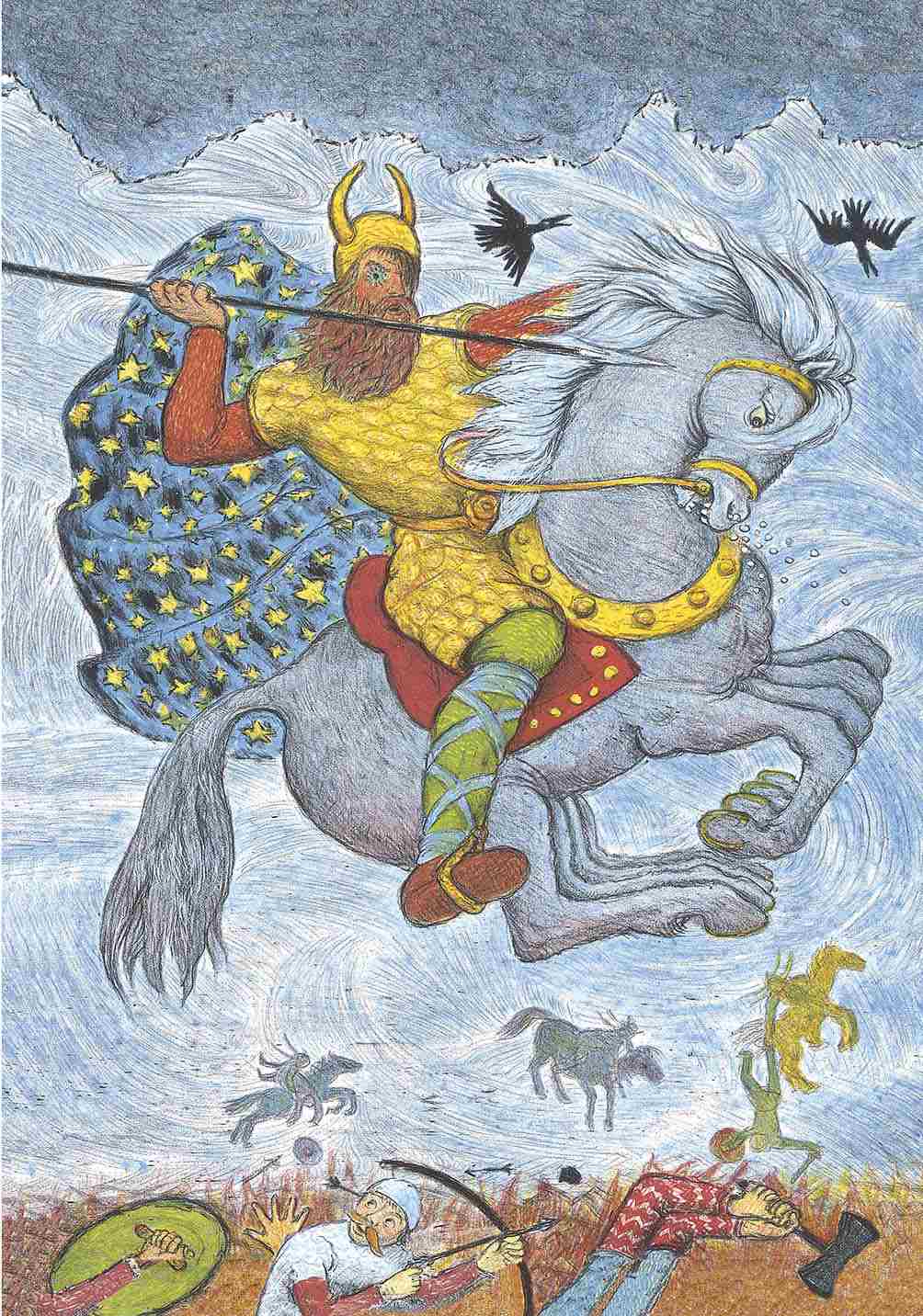
And so it was that during a battle a warrior would feel a light tap on his shoulder. Turning, he would see a maiden with a winged helmet, and then he would know that he had been chosen as one of Odin’s heroes.
With reckless fury, he would leap forward to bring down as many of the enemy as he could until he himself fell in battle. Then the Valkyrie would sweep his fallen body from the ground, throw him across her saddle, and ride with him to Asgard, while far down below the galloping hoofs of her horse the earth faded away.
In Asgard the horse would alight in a grove, where all the trees bore leaves of gold. The leaves would twinkle merrily as the Valkyrie led her hero up the well-trodden path to Valhalla. And, if the hero had acted with great valor, Odin himself would offer him a welcoming drink of sweet mead. Then the warrior would be led into the hall to take his seat among Odin’s heroes and lead a life of riotous feasting and fighting.
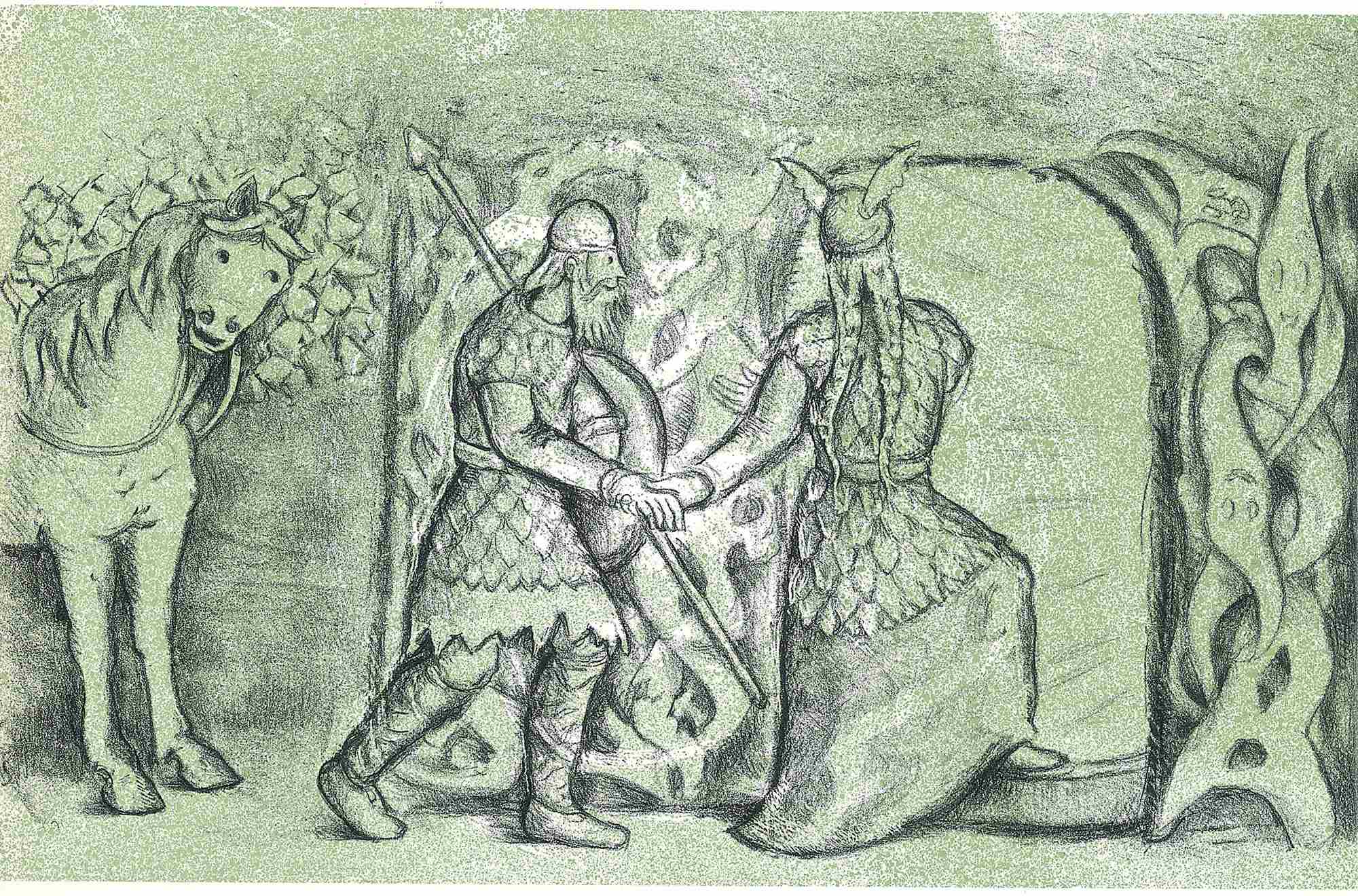
Valhalla was the greatest of all buildings; it was so big that one could hardly see the opposite wall. Five hundred and forty doors could be flung open, each of them so enormously wide that almost a thousand men could march through side by side. Strong spears held up the roof, which was shingled with round shields. The walls of the hall were hung, not with soft tapestries, but with coats of mail and helmets. A long fire blazed down the middle of the hall, and on the benches that lined it on both sides, there was room for thousands upon thousands of Odin’s heroes. There was never a lack of space for a newcomer in Valhalla.
The Valkyries rushed about, keeping the heroes’ platters filled with food and their drinking horns overflowing with beer and sweet mead. There was no end to the heroes’ eating and drinking.
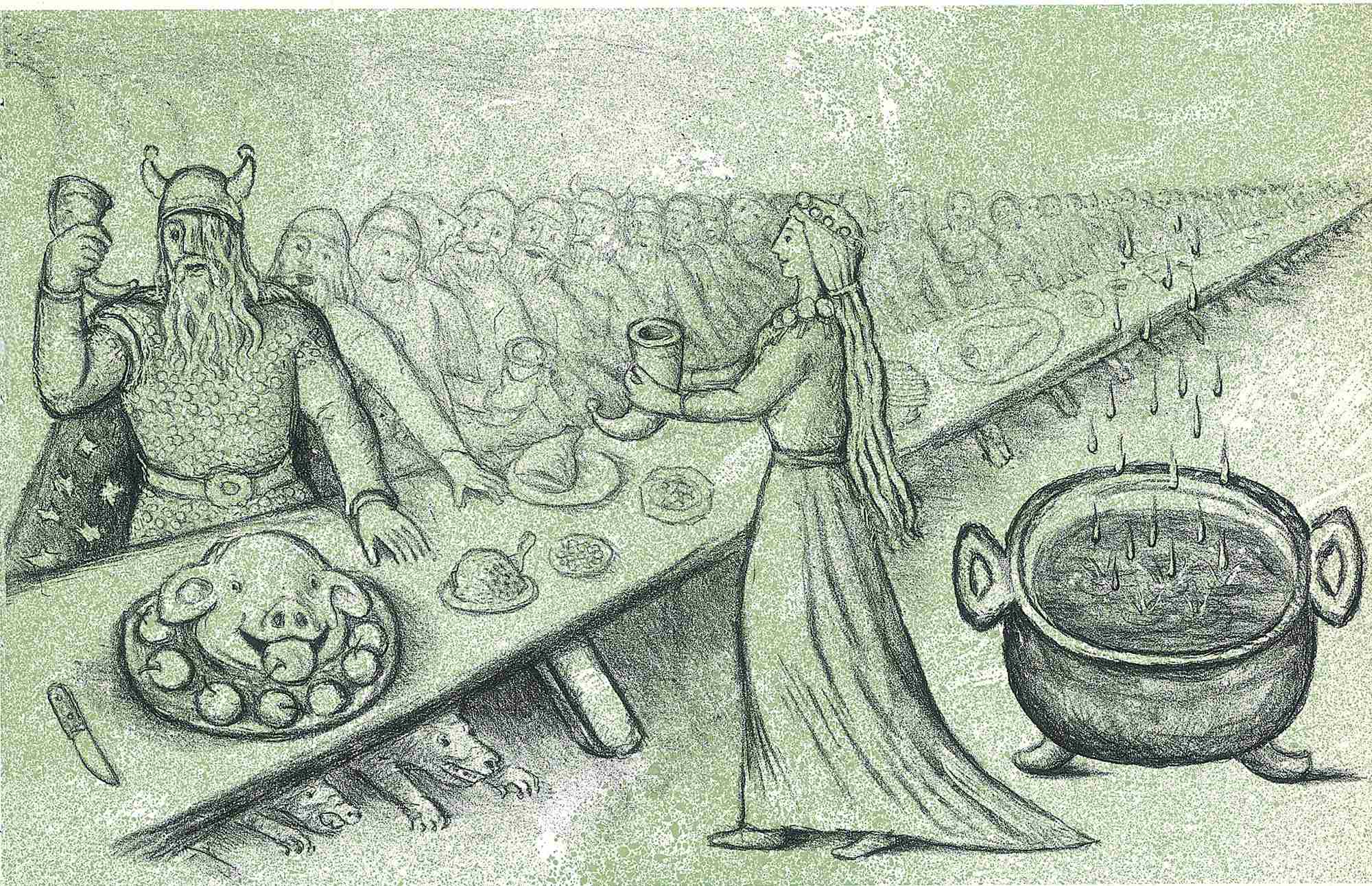
A strange goat lived on the roof of Valhalla, grazing on the branches of an overhanging tree. Instead of milk, mead flowed from her udder—so much mead that the kettles put out to catch it could barely be kept from overflowing, however heartily the heroes drank.
A great hog kept them well supplied with fresh meat. Every morning the hog was butchered, boiled, and devoured; at night it would be alive again, to be butchered the next morning and eaten again. Nothing tasted better to the tongues of dead heroes than fresh pork.
At the north wall of Valhalla was Odin’s seat of honor, and there he sat when he came to feast with his heroes. Near him sat four of his sons, Tyr and Hod, Vidar and Vali, war gods all. Tyr ate with his left hand, since Fenris the wolf had bitten off his right hand. He was the bravest of the brave, and he urged men to war. Hod, who was very strong, was blind, and he led raging warriors into bloody battles.
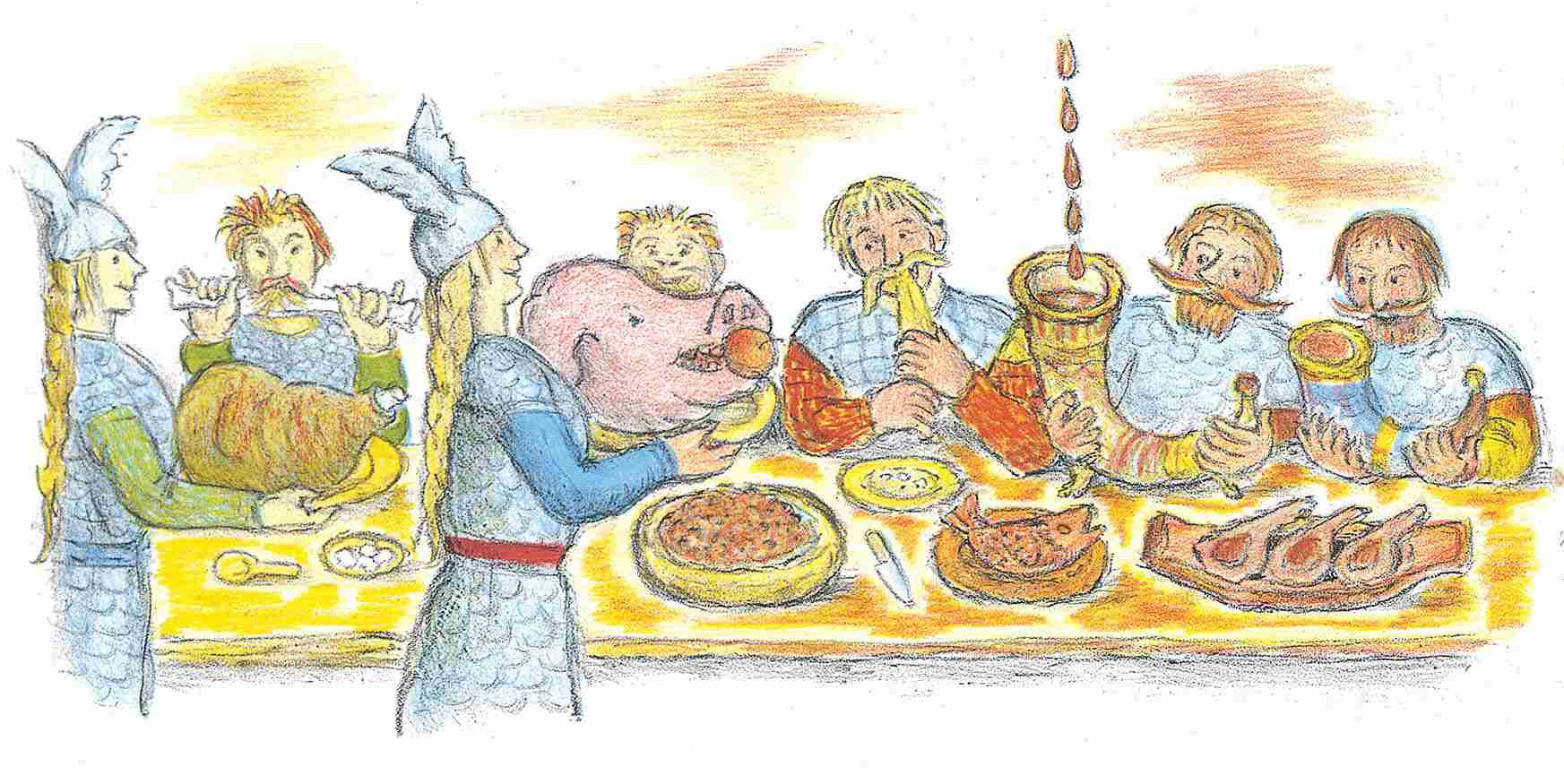
When the feasting was over and Odin had retired, the heroes rolled over and went to sleep on benches strewn with fresh hay. In the morning the golden cock that perched on Valhalla’s roof roused them with his crowing. The heroes woke up in a quarrelsome mood. They chewed toadstools to get themselves into a raging frenzy. Then, as wild Berserks, they jumped up from the benches, reaching for their coats of mail and weapons, and rushed out to fight one another on the field of Ida.
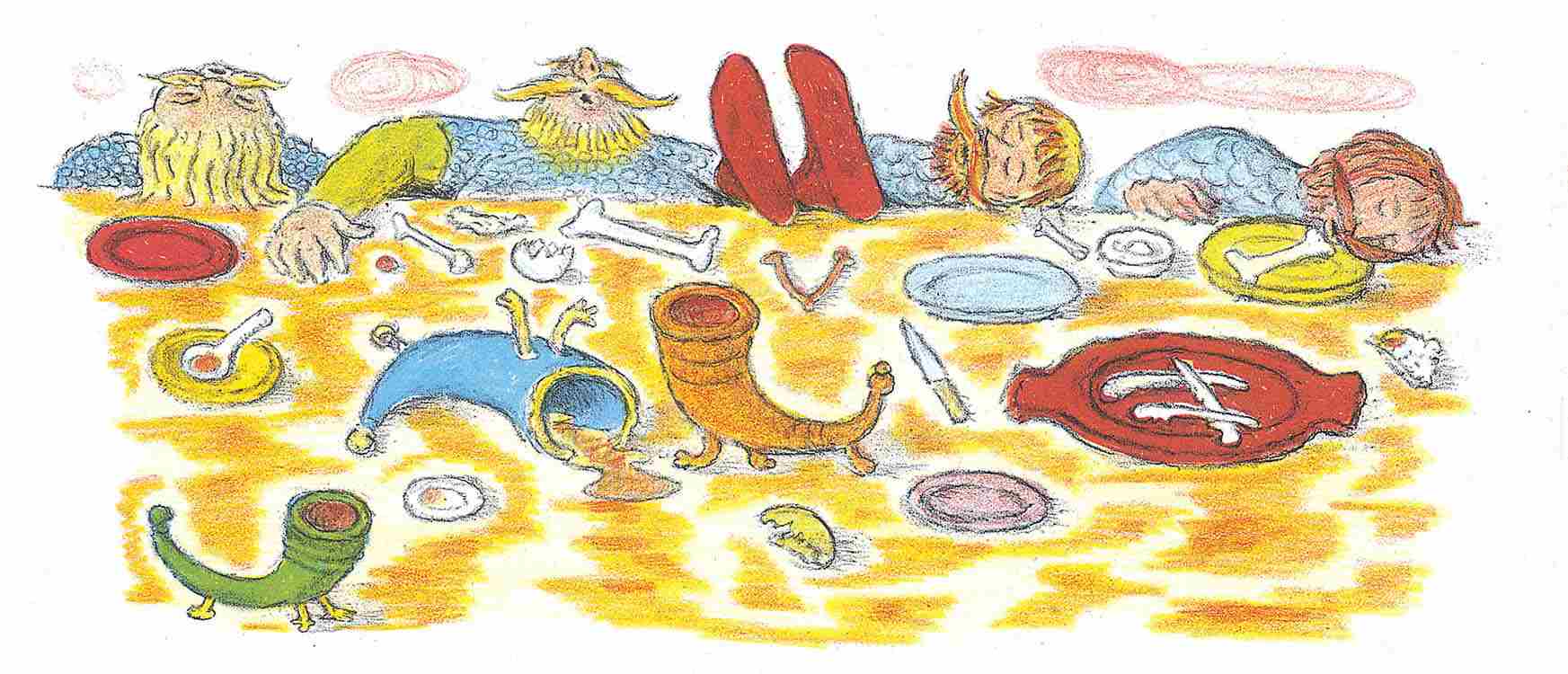
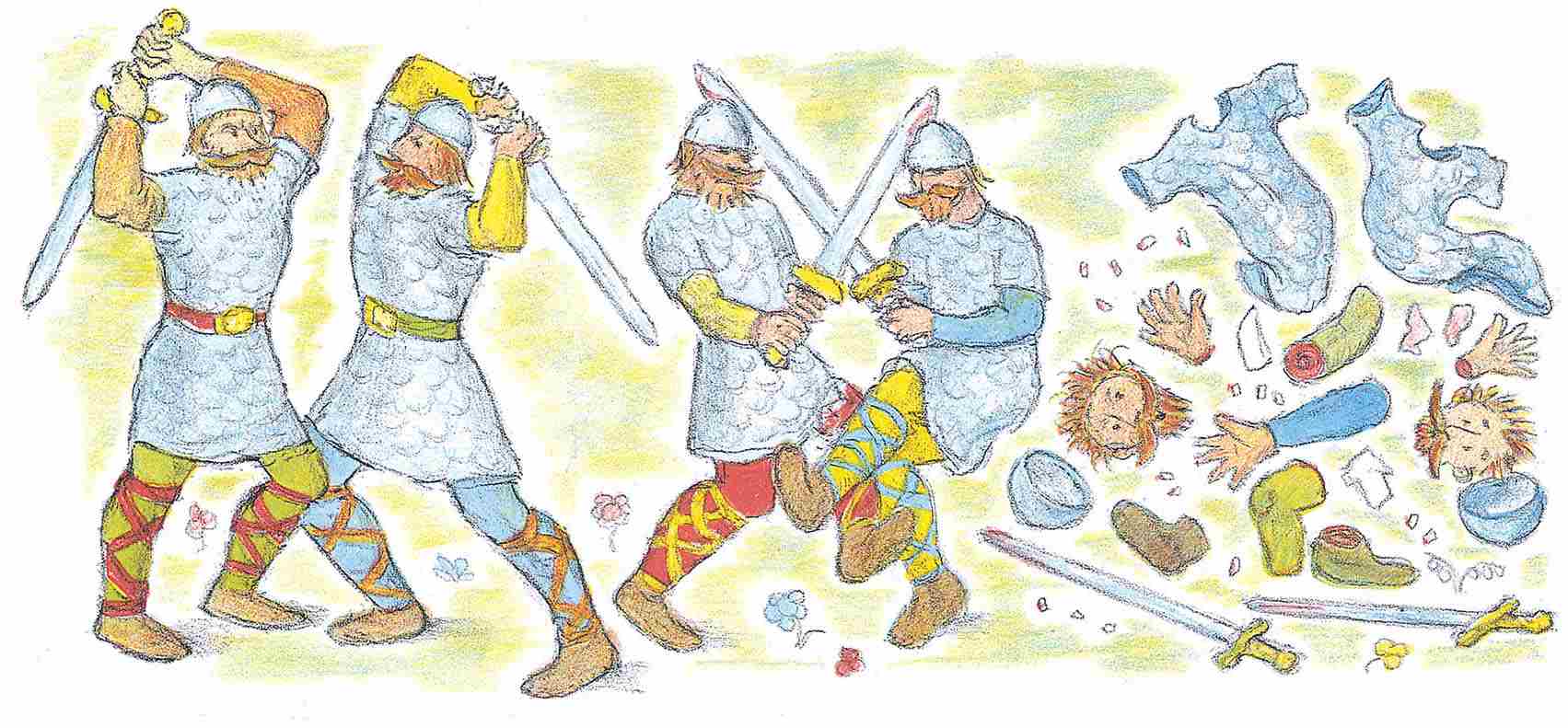
It was no sham battle—every hero fought furiously and soon the huge field was strewn with heads and limbs. But when the dinner bell rang, they all picked up their pieces, put them back where they belonged and streamed through the wide doors of Valhalla. There they settled down for another feast and once again were the best of friends.
Thus the heroes kept trim and fit and had a glorious time while they were at it.
